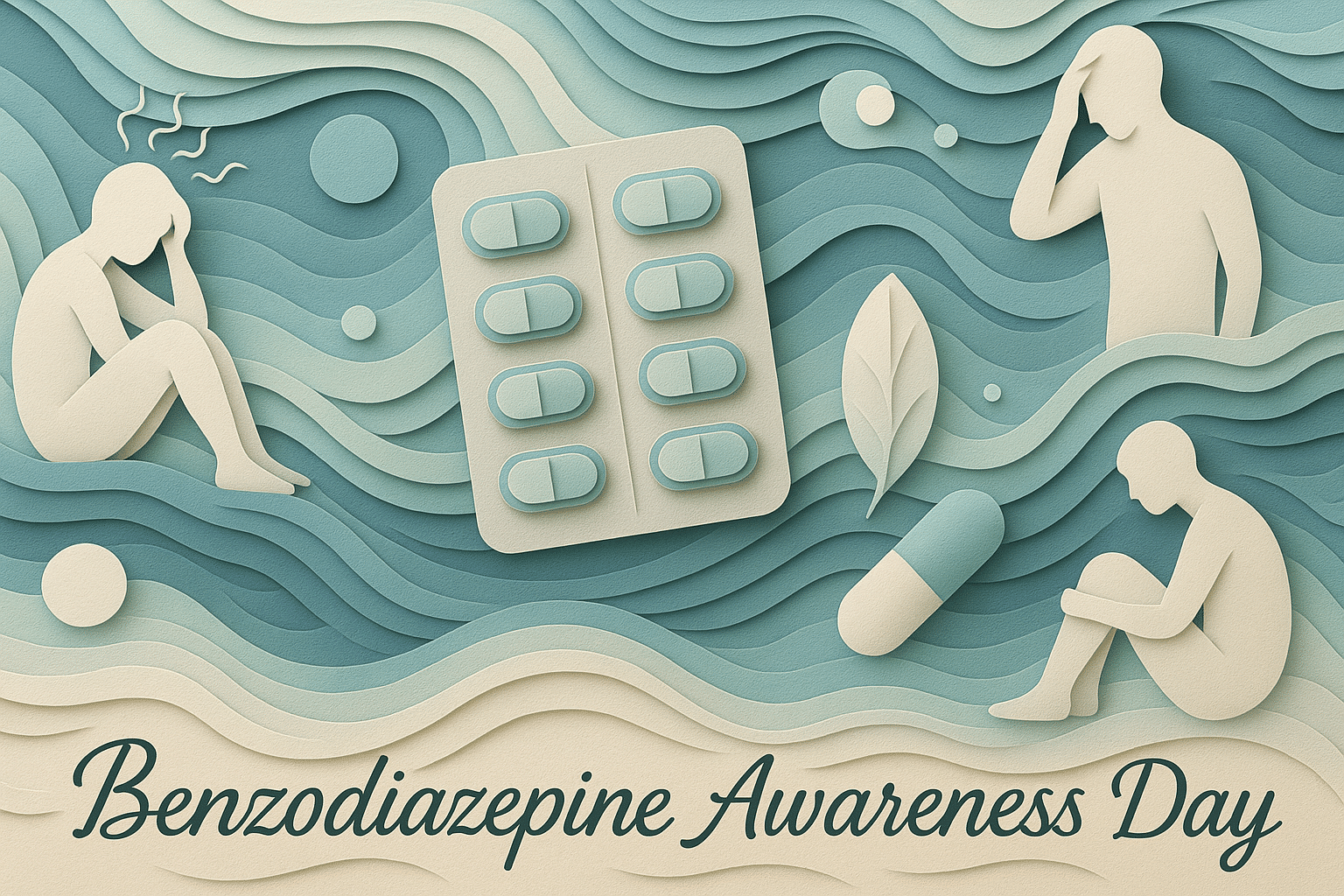What is World Benzodiazepine Awareness Day?
World Benzodiazepine Awareness Day is observed annually on July 11 to raise awareness about the potential risks associated with the long-term use of benzodiazepines. These medications, commonly prescribed for conditions such as anxiety, insomnia and seizures, can lead to physical dependence and withdrawal symptoms when used over extended periods. The day aims to educate both the public and healthcare professionals about these risks and to promote safer prescribing practices.
The observance also serves as a platform for individuals affected by benzodiazepine dependence to share their experiences. By highlighting personal stories and scientific research, the day encourages informed decision-making regarding the use of these medications. It underscores the importance of understanding the balance between the therapeutic benefits and potential harms of benzodiazepines.
History and Origin
World Benzodiazepine Awareness Day was first observed on July 11, 2016. The date was chosen to honour Professor C. Heather Ashton, a pioneer in benzodiazepine withdrawal research, whose birthday falls on this day. Professor Ashton developed the Ashton Manual, a comprehensive guide for safely tapering off benzodiazepines, which has become a valuable resource for individuals and healthcare providers worldwide.
The initiative was started by activists and individuals who had experienced the adverse effects of long-term benzodiazepine use. Their goal was to bring global attention to the issues of dependence and withdrawal associated with these medications. Since its inception, the day has grown into an international movement advocating for better education, research and support for those affected.
Who participates in World Benzodiazepine Awareness Day?
- Individuals affected by benzodiazepine dependence: share personal stories and advocate for awareness
- Healthcare professionals: promote safe prescribing practices and educate patients
- Mental health organisations: support campaigns and provide resources
- Policy makers: consider regulations to prevent overprescription
- General public: engage in discussions and spread awareness through various platforms
Slogans and Themes
World Benzodiazepine Awareness Day focuses on themes such as informed consent, safe prescribing and the importance of understanding medication risks. Common slogans include “Change Through Unity,” “Informed, Not Harmed,” and “Awareness Saves Lives.” These messages aim to foster a collaborative approach to addressing the challenges associated with benzodiazepine use.
Colours, Symbols and Patterns
Colours
- Blue: represents trust and responsibility
- White: symbolises hope and awareness
- Grey: denotes the seriousness of the issue
Symbols
- Awareness ribbon: signifies solidarity with those affected
- Pill icon: represents medication and its potential risks
- Brain imagery: highlights the neurological impact of benzodiazepines
Patterns
- Circular motifs: suggest unity and continuity
- Wave patterns: reflect the ups and downs of withdrawal experiences
- Broken chains: symbolise freedom from dependence
Most used hashtags
- #WorldBenzoDay
- #BenzodiazepineAwareness
- #BenzoWithdrawal
- #InformedConsent
- #SafePrescribing
How do you observe World Benzodiazepine Awareness Day?
- Share personal experiences: encourage open conversations about benzodiazepine use
- Educate others: distribute informational materials and host awareness events
- Advocate for policy change: engage with lawmakers to promote safer prescribing guidelines
- Support affected individuals: offer resources and assistance to those dealing with dependence
- Utilise social media: spread awareness through posts and discussions using relevant hashtags
Why is World Benzodiazepine Awareness Day important?
World Benzodiazepine Awareness Day plays a crucial role in highlighting the often-overlooked issues related to long-term benzodiazepine use. By bringing attention to the risks of dependence and withdrawal, the observance encourages safer prescribing practices and informed decision-making. It also provides a platform for those affected to share their stories and seek support.
The day fosters a global dialogue on the importance of understanding the complexities of benzodiazepine use. Through education and advocacy, it aims to reduce the stigma associated with dependence and promote a more compassionate approach to treatment and recovery.
Features
Contact Info
July 11: Benzodiazepine Awareness Day
Why do you keep falling for the same type?
Read the article Lovemaps: the hidden blueprint of our love.
Did you not find what you were looking for? Let me help you find more.

